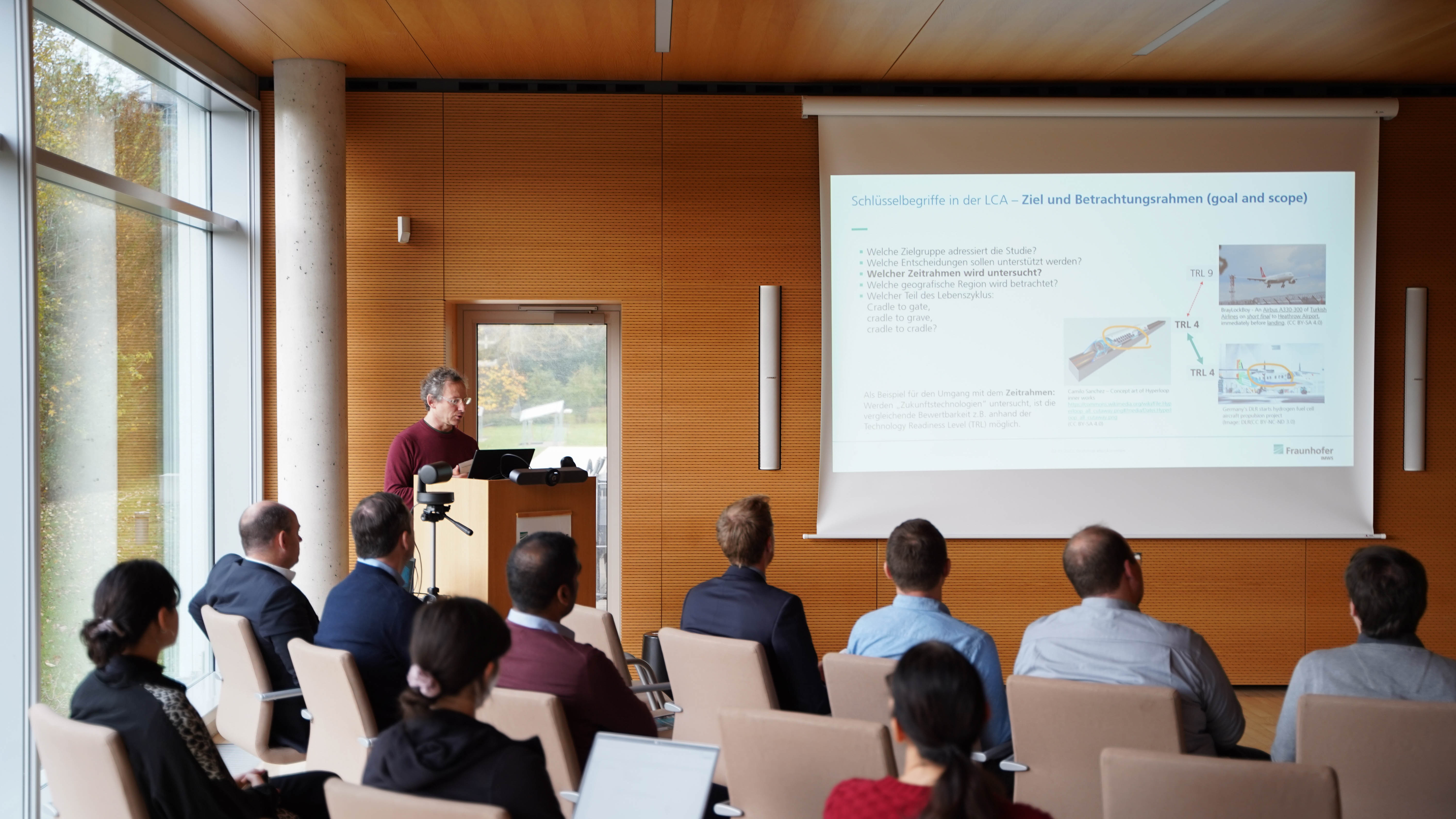Industry meets applied research on the bio-economy: this was the motto under which experts from business, science, politics and civil society came together at the Fraunhofer Institute for Microstructure of Materials and Systems IMWS in Halle (Saale) on November 2, 2023. At a workshop, they discussed promising ways of using new materials and establishing climate-friendly industrial processes. The focus was particularly on current projects in pulp and paper production.

"Bioeconomy is a very complex topic, which is why we wanted to approach it in as interdisciplinary a way as possible. I am delighted that, in addition to representatives from companies and industry associations, we were also able to welcome many research partners, an NGO and authorities such as the Federal Environment Agency," says Sven Wüstenhagen, Deputy Head of the "Sustainable Materials and Processes" Group, who set up the workshop at the Fraunhofer IMWS.
At the end of the event, Wüstenhagen moderated a discussion using the backcasting method: the participants transported themselves to the year 2035 and asked themselves in retrospect which key moments and decisions were formative for the transition to the bio-economy. Prior to this, the experts had presented innovative approaches in pulp production using the example of the Metsä Group and the possible applications of bio-based polybutylene succinate. In addition, the efficiency of methods such as comparative life cycle assessment (LCA) was demonstrated using a case study on optimized pulp production and taking social aspects into account.
"The workshop showed how diverse the activities to pave the way for the bio-economy currently are. At the same time, there are still numerous challenges, for example in the political and social framework conditions," says Wüstenhagen. "As a Fraunhofer Institute, we see ourselves in a position to analyze the technical feasibility of a bioeconomy and build bridges. That's why we now want to organize such workshops annually for a constructive exchange in an open atmosphere."